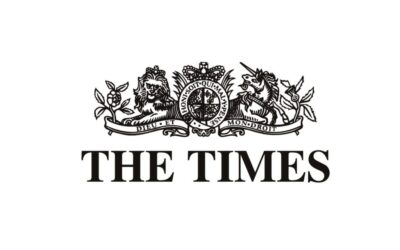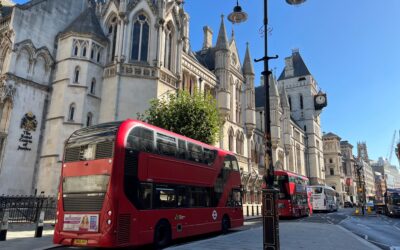What happened?
The British parents in this case had entered into a commercial surrogacy arrangement in India. Following the birth of their older daughter (also through surrogacy in India) in 2011, they embarked on a second surrogacy arrangement and their twin daughters were born in India on 5 May 2014. As they had before, the parents promptly applied for British passports and for parental orders (to secure their status as legal parents) for the twins.
In India, it is common for there to be a wait of 4-5 months before British passports are issued to surrogate-born children (an unacceptably long period, in our view); the parental order securing parentage is then usually granted by the family court a few months later once the family has returned home. However, in this case the process became significantly more difficult.
The major issue was that the Passport Office refused to accept the authenticity of documents the parents had provided confirming the Indian surrogate’s identity and widowed status. (In fact, this issue could have been avoided if the parents had made an application for British nationality registration before applying for their children’s passports, although they were not aware of this). Ultimately, after many months of ongoing discussions about the disputed documentation, the Passport Office (incorrectly) informed the parents that British passports would not be granted and that they would need to apply to adopt their children.
Meanwhile, there were also delays with the parents’ parental order application. Issued in the Coventry Combined Court Centre, the case was allocated to a local judge rather than a judge of High Court level and there followed seven hearings at which little happened as the children remained in India and the court felt unable to progress the case.
The delays had put the children in a dire situation. The mother (who suffered from multiple sclerosis) was in the UK caring for her older daughter and was unable to spend long periods of time in India due to her health and the medication she was taking. The father had spent time caring for the twins on his own in India, but was not able to remain in India indefinitely, as his employment and means of support was in the UK. The parents had engaged professional nannies as the applications dragged on, but by February 2015 their funds for even this were running out and the father returned to India to care for the children himself. There were by this stage very serious concerns about the welfare of the children, who were being cared for in poor accommodation with no air conditioning in mounting temperatures, and had not had the opportunity to form a secure attachment with their parents.
It was not until April 2015 that the parents sought specialist family law and immigration advice. Having done so, the case was then promptly transferred to Ms Justice Russell (one of the three main judges in the High Court who routinely hears international surrogacy cases). Although it is not within the power of the Family Court to interfere in immigration and nationality decisions, on 23 April 2015 Ms Justice Russell made an order requesting the FCO and the High Commissioner of the British High Commission in Delhi confirm in writing why the citizenship and passport applications had not been granted. Miraculously, the children were registered as British citizens on 13 May 2015 and were issued with British passports, allowing them to travel home on 28 May 2015. Safely home, the parental order application could be listed for a final hearing (with the CAFCASS officer able to conduct her welfare enquiries and complete her report) and parental orders were finally made on 8 July 2015.
Guidance for the future
Ms Justice Russell criticised the conduct of the case and highlighted the severe impact that the delays had on the family and the welfare of the children. Although it is not for the Family Court to interfere in nationality issues, she expressed her concern that British passports could be issued so promptly after she simply requested a reason for the delay. She also provided guidance on the management of parental order applications within the court, which will now apply to all surrogacy cases going forward (this has also been approved by the President of the Family Division). This guidance is as follows:
Court allocation – All surrogacy cases in which a child is born outside England and Wales should be allocated to a Judge of High Court level. In London all cases should, if possible, be allocated to Mrs Justice Pauffley, Mrs Justice Theis or Ms Justice Russell (these are the three judges with particular experience hearing international surrogacy cases). Cases which originate outside London should be allocated to a High Court judge in consultation with Mrs Justice Theis. Although this reflects existing practice amongst those experienced in managing surrogacy cases, the guidance makes it clear to all that this is now expected across the board.
CAFCASS role – Unless there are ‘compelling and exceptional reasons based on the child’s welfare’ a parental order cannot be made without the CAFCASS officer having had the opportunity to see the child with his or her parents (in the UK). In practice, this means that parents will need to come to the UK (and have the immigration documentation to enable this) in order for their legal status to be fully resolved.
The need for legal reform – once again
This case is perhaps the most extreme example yet of how UK surrogacy law is failing children. Two loved and wanted biological children of British parents were left stranded for the full first year of their lives in India. They could not bond securely with their sister or parents, cared for by strangers in a foreign country in poor accommodation , and at risk of being abandoned to an orphanage or institution. The parents were in a terrible situation, doing everything they could to support their family and resolve the difficulties and the judgment is a sobering read of the incredible stress this family went through in what should have been a key formative time of life. What lasting effect that may have on these children is yet to be seen.
It is unacceptable. Our law’s refusal to recognise the right people as the legal parents of children born through surrogacy (and so to give the children status rights such as British nationality promptly) is at the root of the problems here. Yes, those issues were worsened by administrative failures and delays (and it is true that the case is also a prime example of how badly things can go wrong when they are not set on the right path at the outset). However, ultimately it is the law which is at fault. We need law which recognises the reality of surrogacy arrangements, treats the right people as the parents immediately a child is born, and safeguards the welfare of the growing numbers of children born through international surrogacy.
The UK’s leading surrogacy lawyers
Find out more about how we support families through surrogacy



